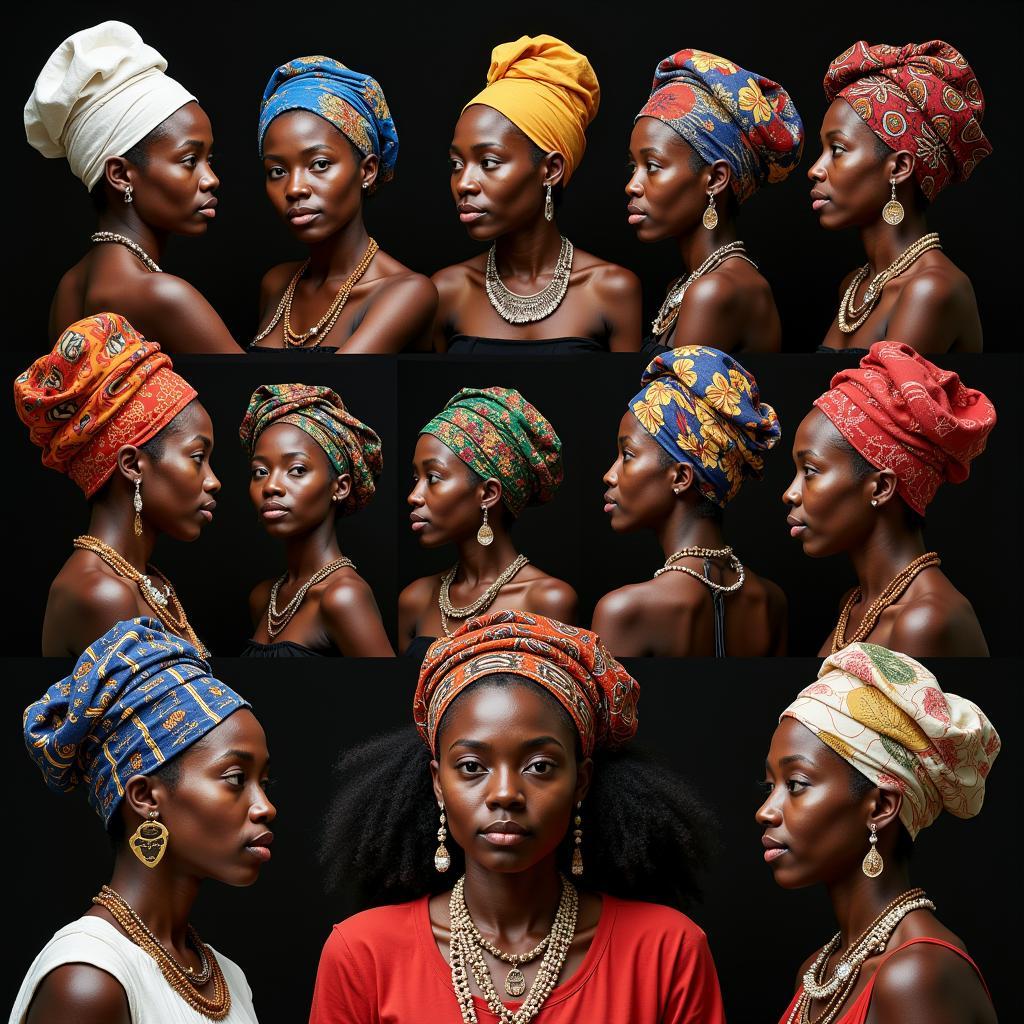Exploring the Vibrant World of African Cichlid Fish
African cichlid fish are renowned for their dazzling colors, fascinating behaviors, and remarkable diversity. These freshwater fish, native to the Great Rift Valley lakes of East Africa, have captivated aquarists and scientists alike for decades. Their vibrant hues and intricate patterns make them a popular choice for home aquariums, while their complex social structures and evolutionary adaptations provide endless opportunities for research and study.
Diving into the Diversity of African Cichlid Fish
The sheer variety of African cichlid fish is staggering. From the electric blues and yellows of the Mbuna cichlids of Lake Malawi to the more subdued, yet equally captivating, earth tones of the Haplochromis cichlids of Lake Victoria, each species boasts its own unique characteristics. This diversity is a testament to the incredible adaptive radiation that has occurred within these isolated lake environments. Each species has carved out its own niche, specializing in different food sources, habitats, and breeding strategies. This specialization has led to a breathtaking array of body shapes, fin structures, and jaw morphologies.
One fascinating aspect of African cichlid behavior is their complex social hierarchies. Many species establish intricate dominance structures, with dominant males controlling territories and access to females. These social interactions can be quite dramatic, involving elaborate displays of fin flaring, color changes, and even physical combat.
African Cichlid Fish: Habitat and Care
Understanding the natural habitat of African cichlid fish is crucial for providing them with proper care in a home aquarium. The Rift Valley lakes are characterized by hard, alkaline water, and replicating these conditions is essential for the health and well-being of these fish. This typically involves using specific substrates, such as crushed coral or aragonite, and monitoring water parameters closely.
Beyond water chemistry, providing appropriate tank décor is also important. African cichlids appreciate rocky environments with plenty of caves and crevices for shelter and territory establishment. These structures not only mimic their natural habitat but also help to reduce aggression and promote natural behaviors.
What makes African cichlid fish so captivating? Their striking beauty and complex behaviors make them a rewarding addition to any aquarium.
Breeding African Cichlid Fish: A Rewarding Challenge
Breeding African cichlids can be a fascinating and rewarding experience. Many species exhibit unique parental care behaviors, including mouthbrooding, where the female incubates the eggs and fry in her mouth. Observing these behaviors firsthand can provide incredible insights into the intricacies of fish reproduction and parental care.
Successfully breeding African cichlids requires careful attention to water parameters, diet, and tank setup. Providing appropriate breeding sites, such as caves or flowerpots, is crucial for encouraging spawning. Once the fry have hatched, raising them can be a challenging but fulfilling endeavor.
Are African cichlid fish difficult to breed? While it can be challenging, with proper care and attention to their specific needs, breeding these fish can be a rewarding experience.
African Cichlid Fish: A Legacy of Adaptation
The story of African cichlid fish is a testament to the power of evolution. Their remarkable diversity, unique adaptations, and complex behaviors make them a captivating subject of study for scientists and a source of wonder for aquarists around the world. Whether you’re fascinated by their vibrant colors, intrigued by their intricate social structures, or simply looking for a unique and engaging addition to your home aquarium, African cichlid fish offer a window into the vibrant world of aquatic life.
Dr. Asha Mwangi, a renowned ichthyologist specializing in African cichlids, notes, “The adaptive radiation of cichlids in the Rift Valley lakes is one of the most remarkable examples of evolutionary diversification on Earth. Their story continues to unfold, offering invaluable insights into the processes that shape biodiversity.”
In conclusion, African cichlid fish are a captivating group of fish with a rich tapestry of diversity, behavior, and evolutionary history. From the vibrant colors of the Mbuna to the intriguing breeding strategies of the mouthbrooders, these fish offer a fascinating glimpse into the world of aquatic life. If you’re considering adding African cichlid fish to your aquarium, be prepared for a rewarding journey filled with vibrant colors, captivating behaviors, and the ongoing discovery of the wonders of nature.
FAQ
- What is the lifespan of an African cichlid fish? African cichlids typically live for 5-10 years, with some species living even longer with proper care.
- What size tank do I need for African cichlids? Tank size depends on the species, but a minimum of 55 gallons is recommended for most.
- What do African cichlids eat? Their diet varies depending on the species, but many are herbivores, omnivores, or carnivores requiring specialized food.
- Are African cichlids aggressive? Some species can be territorial and aggressive, especially males. Proper tank setup and stocking can minimize aggression.
- How can I tell the difference between male and female African cichlids? Males are often more colorful and larger than females, but it can vary by species.
- Can I keep different species of African cichlids together? Yes, but it’s crucial to choose compatible species from the same lake to avoid hybridization and aggression.
- What are the signs of a sick African cichlid? Common signs include loss of appetite, lethargy, unusual coloration, and erratic swimming.
Common Scenarios and Questions
Scenario: My cichlids are fighting. What should I do?
Solution: Ensure your tank is large enough and provides ample hiding places. Consider rearranging the decor to disrupt established territories.
Scenario: My cichlid isn’t eating.
Solution: Check water parameters and ensure the food is appropriate for the species. Observe for other signs of illness.
Further Exploration
Explore our other articles on specific African cichlid species, tank setup guides, and disease prevention. Learn more about the fascinating world of these captivating fish.
Need support? Contact us 24/7: Phone: +255768904061, Email: kaka.mag@gmail.com, or visit us at Mbarali DC Mawindi, Kangaga, Tanzania. We’re here to help!


